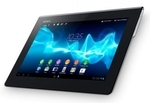POCO F3 5G vs POCO X3 Pro - Which one is for you - Android
POCO has recently unveiled its new bang-for-the-buck flagship-grade smartphones, the F3 5G and the X3 Pro. These smartphones are powered by a Qualcomm Snapdragon...
The post POCO F3 5G vs POCO X3 Pro: Which one is for you? appeared first on YugaTech | Philippines Tech News & Reviews.
POCO has recently unveiled its new bang-for-the-buck flagship-grade smartphones, the F3 5G and the X3 Pro. These smartphones are powered by a Qualcomm Snapdragon 870 5G chip and Qualcomm Snapdragon 860, respectively. The availability of both smartphones in the Philippines has also been announced. Now, you might be torn between the two and wonder, which one is for you? Well, let’s find out!

| POCO F3 5G | POCO X3 Pro |
|---|---|
| 6.67-inch FHD+ (2400×1080) AMOLED ultra-tiny DotDisplay | 6.67-inch FHD+ (2400×1080) LCD DotDisplay |
| 120Hz refresh rate, 360Hz touch sampling rate, HDR10+ | 120Hz refresh rate, 240Hz touch sampling rate, HDR10 |
| Corning Gorilla Glass 5 (front and back) | Corning Gorilla Glass 6 (2.5D glass front, 3D curved back) |
| Qualcomm Snapdragon 870 5G | Qualcomm Snapdragon 860 Mobile Platform |
| Qualcomm Adreno 650 GPU | Qualcomm Adreno 640 GPU |
| 6GB, 8GB LPDDR5 RAM | 6GB, 8GB LPDDR4X RAM |
| 128GB, 256GB UFS 3.1 storage | 128GB, 256GB UFS 3.1 storage |
| Expandable storage up to 1TB | |
| Triple-rear cameras: | Quad-rear cameras: |
| • 48MP F1.79 4-in-1 large pixel (main) | • 48MP F1.79 4-in1 large pixel (main) |
| • 8MP F2.2 (ultra-wide) | • 8MP F2.2 (ultra-wide) |
| • 5MP F2.4 (tele-macro) | • 2MP F2.4 (macro) |
| • 2MP F2.4 (depth) | |
| 20MP front camera | 20MP front camera |
| 5G, 4G LTE | 4G LTE |
| Dual-SIM (nano) | Dual-SIM (nano) |
| WiFi 6 | WiFi 5 |
| Bluetooth 5.1 | Bluetooth 5.0 |
| NFC | NFC |
| IR Blaster | IR Blaster |
| Dual speakers | Dual speakers |
| Hi-Res Audio & Hi-Res Audio Wireless certified | High-res audio certified |
| Dolby Atmos | |
| USB Type-C | USB Type-C |
| Fingerprint scanner (side) | Fingerprint scanner (side) |
| Face Unlock | Face Unlock |
| 3.5mm headphone jack | |
| MIUI 12 for POCO (Android 11) | MIUI 12 for POCO (Android 11) |
| 4,520mAh battery w/ 33W in-box fast charger | 5,160mAh battery w/ 33W in-box fast charger |
| LiquidCool Technology 1.0 Plus | LiquidCool Technology 1.0 Plus |
| D5 copper heat pipe + multi-layer graphite | D5 copper heat pipe + multi-layer graphite |
| 163.7 x 76.4 x 7.8mm | 165.3 x 76.8 x 9.4mm |
| 196g | 215g |
| Arctic White, Night Black, Deep Ocean Blue | Phantom Black, Frost Blue, Metal Bronze |
Summary of advantages
POCO F3 5G
• AMOLED
• 360Hz touch sampling rate
• Qualcomm Snapdragon 870 5G
• WiFi 6
• Bluetooth 5.1
• 5G connectivity
• 5MP Tele-macro
• Dolby Atmos-certified audio
POCO X3 Pro
• Corning Gorilla Glass 6
• Quad rear cameras
• Larger battery
• Expandable storage up to 1TB
• 3.5mm headphone jack
• Lower price
The POCO F3 has more advantages, but it doesn’t mean that we can ignore the POCO X3 Pro, as it also has other features to offer.
The POCO F3 and the POCO X3 Pro have the same 6.67-inch FHD+ (2400×1080) DotDisplay with a 120Hz refresh rate. However, the POCO F3 comes with an AMOLED screen, while the POCO X3 Pro has an LCD. The POCO F3 5G comes with a 360Hz touch sampling rate, HDR10+, and Corning Gorilla Glass 5. On the other hand, the POCO X3 Pro supports a lower 240Hz touch sampling rate, HDR10, but a more advanced Corning Gorilla Glass 6 protection. Both smartphones can deliver a great viewing experience, but if you are after an AMOLED screen with a higher-touch sampling rate, the POCO F3 5G has it for you.
For the cameras, the two offer the same 48MP main shooter and an 8MP ultra-wide sensor. The POCO F3 offers triple rear cameras, completed by a 5MP tele-macro lens. The X3 Pro, on the other hand, is equipped with quad rear cameras with a 2MP macro lens and an extra 2MP depth sensor, which the POCO F3 doesn’t have. Although, less could be more as the POCO F3’s third rear lens has more to give with its 5MP tele-macro lens. Meanwhile, both smartphones have the same 20MP selfie camera, which can be equally good for selfies.
Performance-wise, both run on MIUI 12 for POCO based on Android 11. The POCO F3 has a more powerful Qualcomm Snapdragon 870 5G chip with Adreno 650 GPU. It also comes with an X55 modem for 5G connectivity. The POCO X3 Pro, on the other hand, has a Qualcomm Snapdragon 860 chip with Adreno 640 GPU. Both sport the same configurations with up to 8GB of RAM and up to 256GB of storage. In case you opt for larger storage, the POCO X3 Pro has expandable storage of up to 1TB via microSD.
Looking at their other features, both have Dual-SIM support, dual speakers, hi-res audio support, side-mounted fingerprint scanners, face unlock, NFC, and an IR Blaster for controlling appliances. However, the POCO F3 has the newer WiFi 6, Bluetooth 5.1, and Dolby Atmos-certified audio. If there’s another thing the POCO X3 Pro holds and the POCO F3 lacks, that’s the 3.5mm headphone jack. Though, that’s not a problem if you prefer wireless. The POCO F3 is also hi-res audio wireless certified.
As for the battery, the POCO X3 Pro wins in capacity by having an extra 560mAh than the POCO F3. Though, they both support 33W fast charging.
The POCO F3 costs PHP 20,990 for the 8GB + 256GB model, and PHP 17,990 for the 6GB + 128GB. The POCO X3 Pro, on the flip side, costs PHP 15,990 for the 8GB + 256GB, and PHP 12,990 for the 6GB + 128GB. So, which POCO smartphone is for you? Well, that would mostly depend on the budget.
The POCO F3, despite not having the “Pro” on its name, has more to give than the POCO X3 Pro. It comes with 5G connectivity, a more powerful processor, an AMOLED screen with a 120Hz refresh rate and 360Hz touch sampling rate, Dolby Atmos-certified dual speakers, and more. If you’ve got some extra budget, going for the POCO F3 could be a great choice with the solid specs it carries amidst its mid-range price tag.
Contrariwise, if you are not yet interested in getting a 5G-powered handset for now and you like what the more affordable POCO X3 Pro offers, you already know which one is best to get.
What do you guys think? Please share your thoughts about this in the comment section below.
The post POCO F3 5G vs POCO X3 Pro: Which one is for you? appeared first on YugaTech | Philippines Tech News & Reviews.
23/03/2021 09:35 AM
OnePlus 9 5G, 9 Pro 5G, 9R 5G now official
23/03/2021 04:12 PM
Sony will be closing down PSP, PS3, and PS Vita stores — report
23/03/2021 12:34 PM
Realme C25 - Helio G70, 6.5-inch screen, 6000mAh battery
23/03/2021 08:05 AM
ASUS ZenBook 13 OLED, ZenBook Duo 14 officially launches in the Philippines
23/03/2021 02:31 PM
XTREME Appliances joins Lazada, Shopee’s 3.27 sale
23/03/2021 08:04 AM
Oppo Find X3 Pro - Specs rundown
23/03/2021 06:06 AM
Reviewed - Lenovo ThinkPad T14 Gen 1
23/03/2021 03:27 AM
Niantic, Nintendo to develop Pikmin real-world AR game
23/03/2021 03:27 AM
- HEALTH
- Comics
- Libraries & Demo
- Sports Games
- Racing
- Photography
- Transportation
- Media & Video
- Sports
- Health & Fitness
- Weather
- Medical
- Cards & Casino
- Arcade & Action
- Personalization
- Social
- Communication
- Productivity
- Casual
- Shopping
- Tools
- Brain & Puzzle
- Business
- News & Magazines
- Finance
- Lifestyle
- Music & Audio
- Entertainment
- Travel & Local
- Books & Reference
- Education










